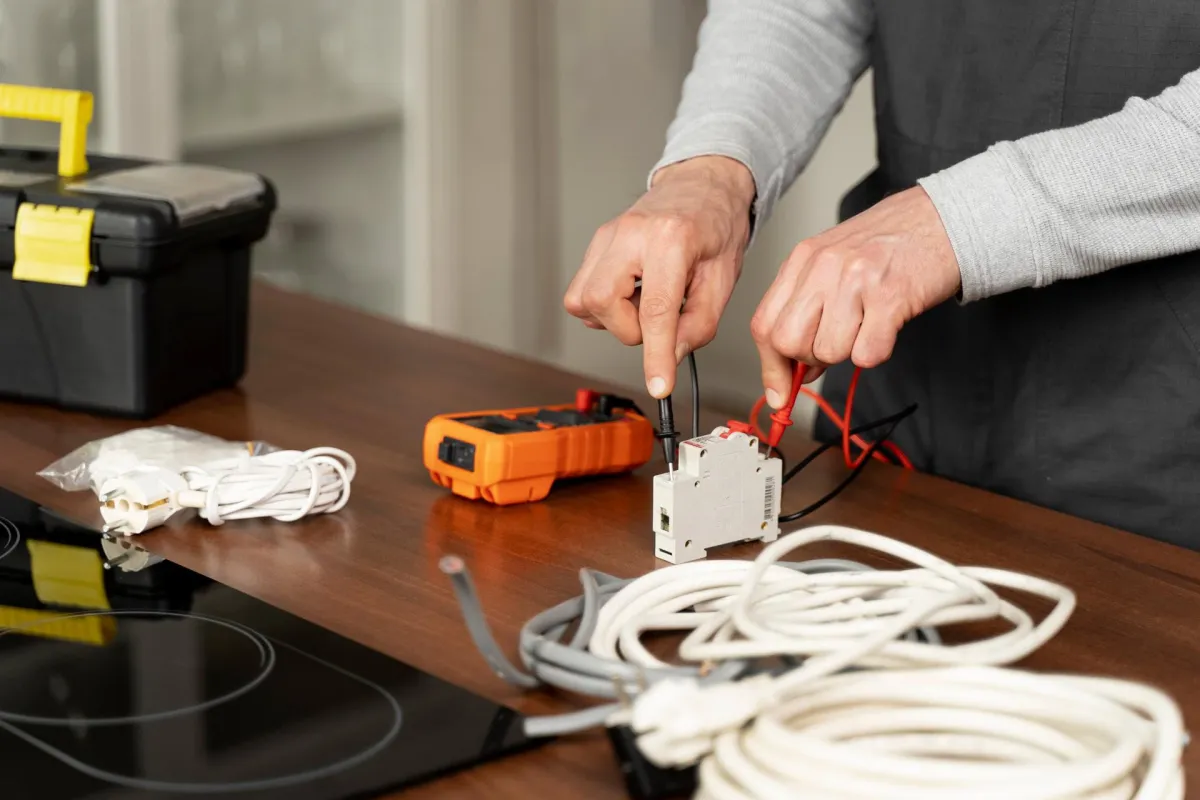ELectrician IN LEHI, UTAH

What to Expect During a Complete Rewiring Project in a Sandy Home
Introduction
Rewiring your Sandy home can feel intimidating. You may be worried about the cost, disruption, or how long it will take. A complete rewiring project is a big step toward safety and modernization, especially if your home has outdated or unsafe wiring.
This guide walks you through what happens during a full rewire, what challenges to expect, how to prepare, and how it benefits your home in the long run.
What a Complete Rewiring Project Involves
A full rewire means replacing most or all of the electrical wiring, outlets, switches, and often upgrading the electrical panel. It’s a whole-house electrical refresh that brings your system up to modern safety standards.
Here’s what is typically included:
Running new cables through walls, ceilings, and floors
Removing or disconnecting old wiring
Installing new outlets, switches, and lighting circuits
Upgrading or replacing the main electrical panel
Ensuring proper grounding and bonding
Testing all circuits for safety and compliance
Restoring drywall, paint, and trim after work is complete
Step-by-Step Process of a Rewiring Project
Knowing the process helps you prepare and reduce stress during the project.
Step 1: Inspection and Planning
Your electrician will inspect your current wiring, panel, and circuits. They’ll discuss your power needs, future plans, and code requirements. A plan is created that includes permits, materials, and a clear scope of work.
Step 2: Preparing the Home
Furniture is covered, flooring is protected, and areas where walls need to be opened are marked. Trim or drywall may be removed for access.
Step 3: Rough-In Wiring
New cables are run through walls, ceilings, and floors. Junction boxes and outlets are installed, and circuits are grouped and labeled.
Step 4: Panel Work
New circuits are connected to the main panel. If the panel is outdated or too small, it is upgraded to handle the new load safely.
Step 5: Final Installation
Switches, outlets, fixtures, and other components are connected. The electrician ensures every connection is secure and labeled.
Step 6: Testing and Inspection
Each circuit is tested for proper voltage, grounding, and safety. A city or county inspector reviews the work to confirm it meets code.
Step 7: Restoration and Cleanup
Drywall is patched, paint is touched up, and trim is reinstalled. The electrician performs a walkthrough so you understand your new system.
Challenges and Things to Expect
A whole-house rewire can be disruptive, but being prepared helps.
You may have partial power outages while circuits are disconnected.
There will be noise and dust from drilling and pulling wires.
Some surprises can arise, like hidden damage or outdated components that must be replaced.
Budget a little extra for repairs, drywall, or trim work after the electrical is done.
Work can take several days to a few weeks depending on house size and complexity.
Costs and Timeline
Costs vary depending on the size of your home, the condition of your current wiring, and the upgrades required. Most full rewires fall in the range of several thousand dollars, with panel upgrades and finish repairs adding to the total.
The project can take anywhere from a few days to a couple of weeks. Planning ahead and having a clear timeline with your electrician will make the process smoother.
Frequently Asked Questions
Do I need to leave my home during the project?
Not usually. Many homeowners stay in the home, though some rooms may be without power during parts of the project.
Can I rewire only part of the house?
Yes. Partial rewires are possible, but a full rewire is recommended if your home has very old or unsafe wiring.
Will rewiring increase my home’s value?
Yes. New wiring improves safety and helps your home meet inspection standards, which is attractive to future buyers.
How do I prepare my home?
Clear access to outlets and switches, remove fragile items, and discuss which rooms will be worked on first with your electrician.
Is a permit required?
Yes. Rewiring is a major project that must be inspected for safety and code compliance.
Conclusion
A full home rewiring project in Sandy is a significant but worthwhile investment. It improves safety, ensures your home meets code, and prepares it for modern appliances and future technology. By understanding each step, planning for disruptions, and working with an experienced electrician, you can make the process as smooth as possible.
Our Services
Helpful Links
© 2025 All Rights Reserved | Bar H Bar Electric
